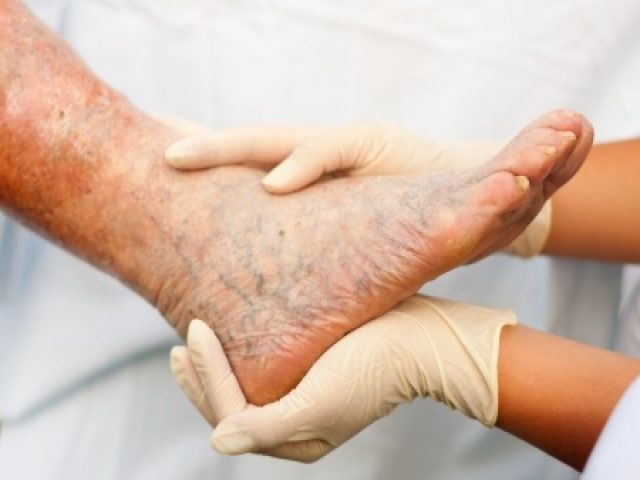Recent Blogs
- The Benefits of Minimally Invasive Vein Treatments: What You Need to Know
- How ClosureFast Treatment Transforms Vein Health?
- Bulging Veins (Varicose Veins)- A part of Pregnancy
- Top 10 Varicose Vein Myths-Busted!
- Have You Eliminated Dancing Because of Varicose Veins?
- 11 Common Risk Factors for Venous Insufficiency
- How Varithena works?
- Some best exercises to prevent varicose veins
- What Are The Differences of Superficial and Deep Veins?
- Sclerotherapy An Effective Treatment for Varicose and Spider Veins
Published on: 19-Oct-2018
Last updated: 03-Jul-2025

Chronic venous disease (CVD) runs the gamut from small, dilated veins in the skin, which are often referred to as “spider veins,” to chronic inflammation of the lower leg, and even skin ulceration. Somewhere in the middle is varicose vein disease and chronic swelling of the lower leg due to venous hypertension. Although these problems may be viewed by the patient as a “mixed bag” of disorders, they actually represent a spectrum of progression in the severity of chronic vein disease.
Chronic venous disease is a common medical condition, affecting about 20% of the adult population in developed countries. The most accepted risk factors for CVD include age greater than 65, female gender, a family history of vein disease in your parents, pregnancy, and obesity. Having more than one of these risk factors significantly increases your risk for this problem. The role of smoking, high blood pressure, and sedentary lifestyle in CVD is controversial. One study has suggested tight garments may contribute to CVD. Leg crossing is often cited as a risk, but there is no proof that this is a significant contributing factor to vein problems.
To date, there are no definitive studies that have proven that chronic venous disease can be completely prevented, but there is growing evidence suggesting that certain interventions may reduce the severity or delay the progression of CVD. Compression stockings, weight control, exercise, and even some drugs may help minimize the symptoms and effects of this condition. Medical-grade compression stockings have been used for many years to treat CVD. They are especially effective at relieving the symptoms of heaviness, swelling, and aching in the legs, as well as reducing the high venous pressure in the lower leg, which is the root cause of CVD.
During pregnancy, compression stockings have shown to counteract the backward flow of blood into the leg veins from the pelvic veins, a condition exacerbated by the increased pressure in the pelvic veins due to the enlarging uterus. In fact, compression has long been a cornerstone of treatment for more advanced vein disease, including those with chronic inflammation and venous ulceration. When combined with minimally invasive procedures to treat the underlying diseased veins, compression can offer relief for patients suffering from advanced symptoms of CVD.
Since obesity is a significant risk factor for CVD, maintaining a healthy weight can certainly help reduce the risk of developing this condition. In addition, maintaining a healthy weight can improve cardiovascular health, reduce strain on your veins, and prevent other health conditions. Regular exercise, including activities such as walking, can also tone the muscles in your lower legs. This, in turn, reduces venous pressure and promotes better blood circulation, ultimately decreasing the burden on your veins.
Another important factor is avoiding prolonged periods of standing or sitting. When you remain in one position for extended periods, the blood flow in your legs can stagnate, contributing to the development of vein disease. Taking regular breaks to walk or stretch can significantly improve circulation. Elevating your legs when sitting or resting is also highly beneficial, as it helps relieve pressure on the veins.
While it may not be possible to completely prevent chronic venous disease, especially when a family history of vein problems is involved, lifestyle changes such as maintaining a healthy weight, regular exercise, and the use of compression stockings can significantly improve the symptoms of CVD. Furthermore, with modern medical advancements, most vein disorders can now be treated with relatively simple office procedures, avoiding the need for invasive surgery in many cases. These procedures can help address the underlying causes of vein disease, improving your overall quality of life.
To learn more about vein disease, vein health, and the minimally invasive treatment options available at Comprehensive Vein Care, please schedule your free consultation or call us at +1 937-325-3830. Our team is ready to help you take the next steps toward better vein health and enhanced well-being.